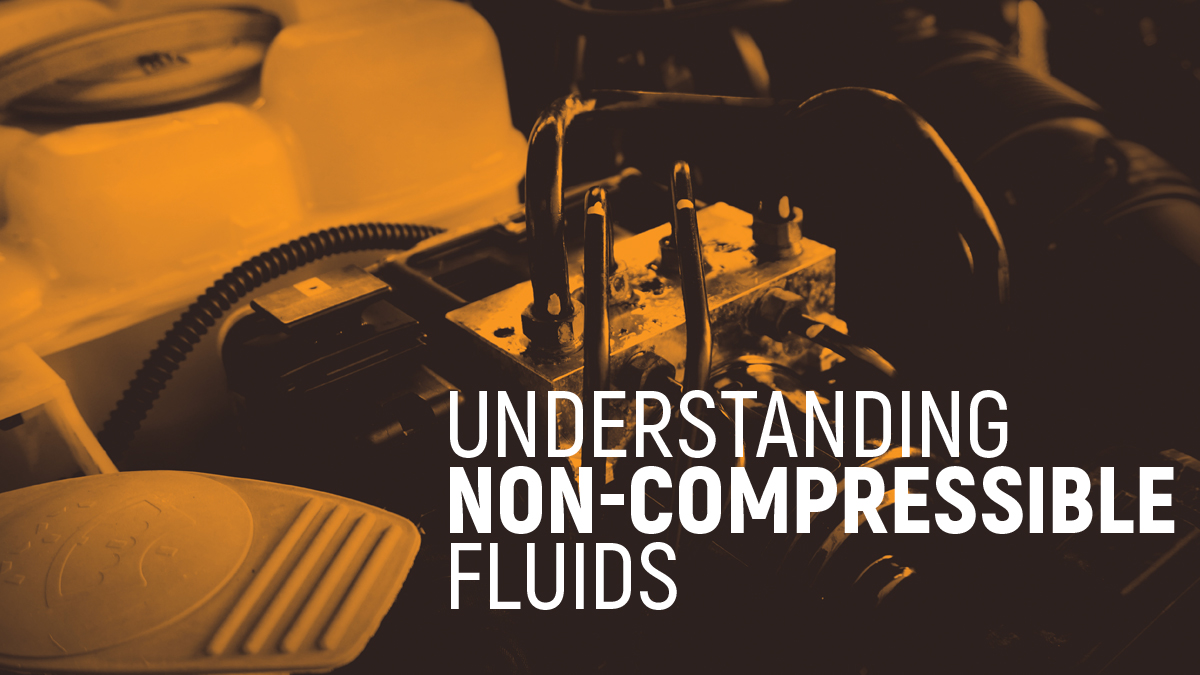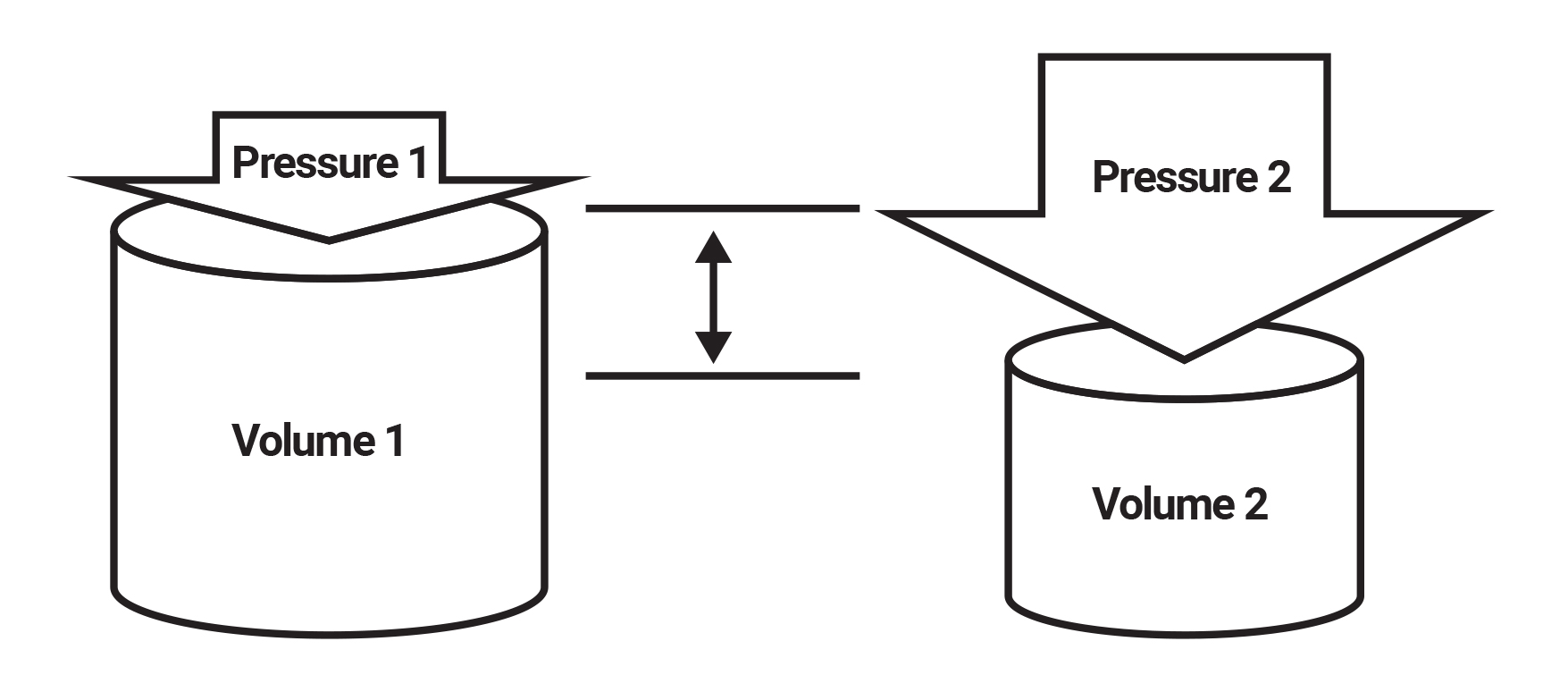Understanding Non-Compressible Fluids

Compressibility is the measure of the change in volume of a fluid due to increased pressure. Atmospheric air and the gases that make up the air are highly compressible. This is what allows large volumes of air to be compressed into a smaller storage container such as a compressed air tank, propane tank, or even an automobile tire. Unlike air or other gases that can be compressed, hydraulic fluids are usually considered non-compressible. Hydraulic fluid has a small amount of compressibility that varies with the specific makeup or structure of the fluid, but for most practical purposes, it is negligible. For a typical petroleum-based fluid, there would only be about a 0.4% decrease in volume at a pressure of 7 MPa (1,000 psi). It is the non-compressible nature of hydraulic fluid that makes it beneficial for lifting heavy loads with a relatively small actuator (motor or cylinder), giving hydraulic systems a high power density compared to pneumatic systems where the air is highly compressible.

Test Your Skills
1 Which of the following would be considered non-compressible?
A. Compressed Air
B. Gases
C. Oxygen
D. Nitrogen
E. Hydraulic Fluid







